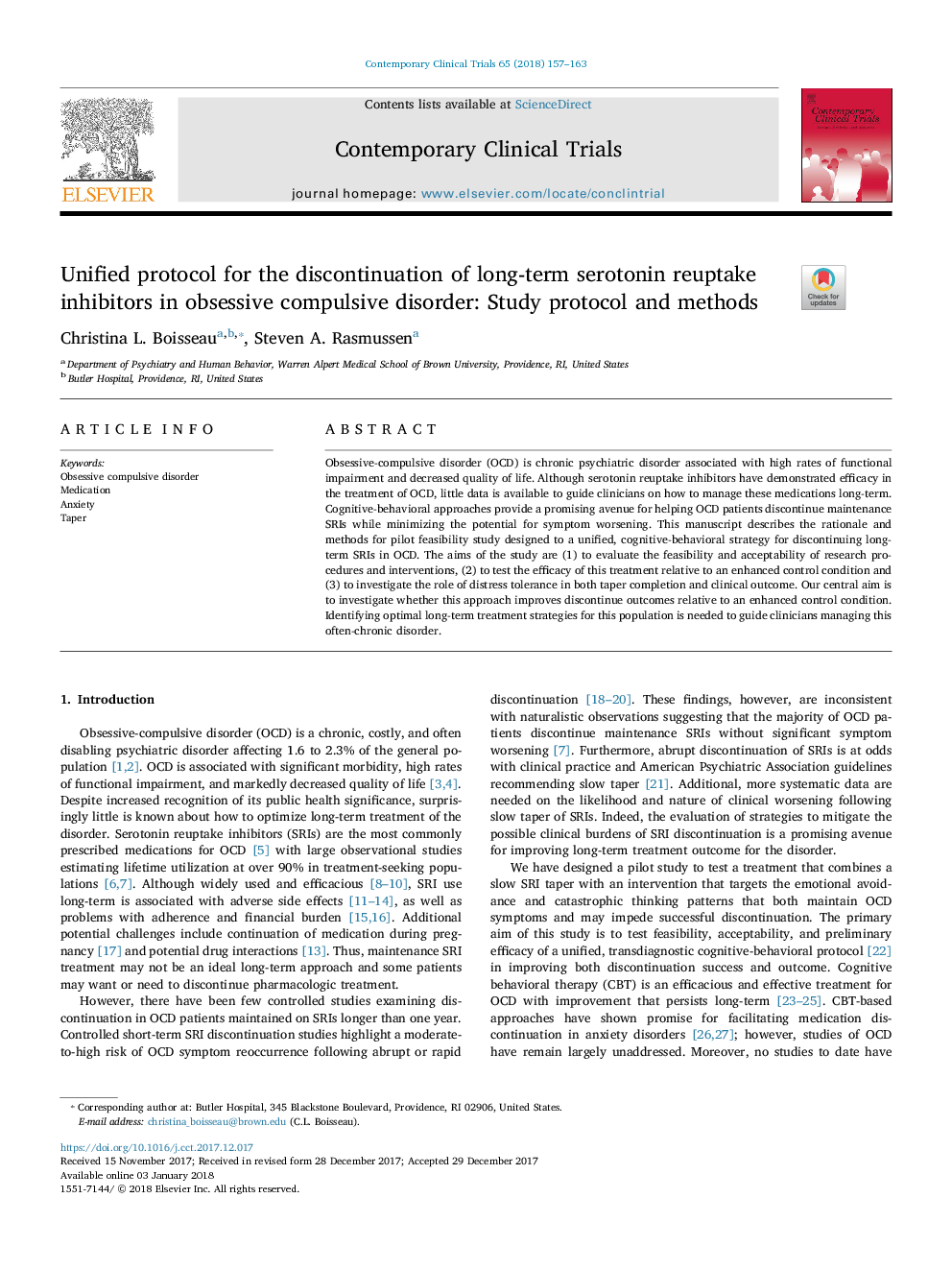ترجمه فارسی عنوان مقاله
پروتکل متحد برای توقف مهارکننده های بازدارنده طولانی مدت سروتونین در اختلال وسواسی اجباری: پروتکل و روش های مطالعه
عنوان انگلیسی
Unified protocol for the discontinuation of long-term serotonin reuptake inhibitors in obsessive compulsive disorder: Study protocol and methods
| کد مقاله | سال انتشار | تعداد صفحات مقاله انگلیسی |
|---|---|---|
| 127890 | 2018 | 7 صفحه PDF |
منبع

Publisher : Elsevier - Science Direct (الزویر - ساینس دایرکت)
Journal : Contemporary Clinical Trials, Volume 65, February 2018, Pages 157-163
ترجمه کلمات کلیدی
اختلال وسواسی اجباری، دارو، اضطراب، تونر
کلمات کلیدی انگلیسی
Obsessive compulsive disorder; Medication; Anxiety; Taper;

